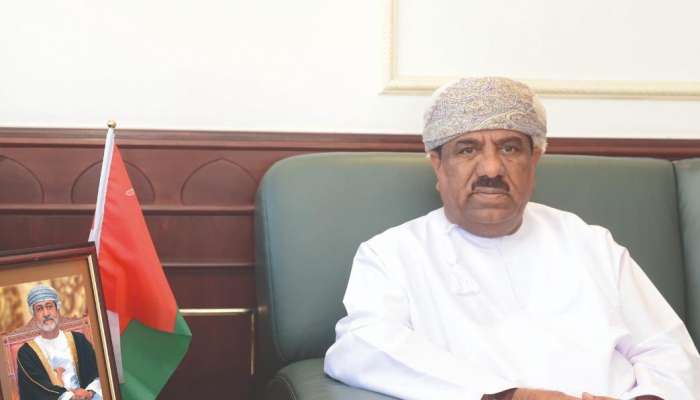
Muscat: The decision to raise fees for work permits of expatriates by the Ministry of Labour will negatively hurt the local economy, the Chairman of the Board of Directors of the Oman Chamber of Commerce and Industry, said.
A statement issued online by Oman Chamber of Commerce and Industry (OCCI), said: "His Excellency Mr Ridha Al Saleh, Chairman of the Chamber's Board of Directors, affirms that in light of the ongoing Corona pandemic, the decision to increase and renew work permits fees will negatively affect local economic activity. Business owners will incur great losses and this situation may cause consumer concern in terms of high costs of goods and services."
On the aspirations of the Chamber's Board of Directors, His Excellency explained the Chamber's interest in providing job opportunities for Omani cadres, noting that to achieve this, it is necessary to work on expanding the local economy by encouraging and attracting investments in various economic sectors, which will produce more work fields and in different specialties.
Al-Saleh stated: "We must be aware that we are heading towards uneasy economic conditions, what we have seen in terms of lifting subsidy for basic services, applying a value-added tax, lower oil prices, the repercussions of the Corona pandemic, and the huge losses it caused in various economic fields and continues to this day.
Al Saleh said: "We must work towards reducing the complications to develop an economy managed by Omani youth. Education outputs are increasing annually, and hence the economy must be in line with the appropriate jobs for these outcomes."
Regarding what the Ministry of Labour presented in its executive plan for the current year, His Excellency Mr Ridha stated that this approach comes at a time when everyone, represented by the government, society and the private sector, seeks to provide job opportunities for job seekers and certificate holders to work in the private sector and give them the opportunity to contribute to the growth of the national economy.
His Excellency the Engineer explained that the issuance of the Labour Law has become more important than what was previously mentioned, and that the participation of the private sector, represented by the Chamber when preparing the law, is important and necessary to achieve an equal equation that regulates the labor market and ensures balance and preservation of the rights and duties of the various production parties
His Excellency the engineer stressed the importance of education and vocational training and refining the skills of young people through on-the-job training so that they are qualified and able to take on jobs and professions with professionalism and mastery.
His Excellency Al Saleh explained the importance of activating social dialogue represented by both the Ministry of Labour, Oman Chamber of Commerce and Industry and the General Federation of the Sultanate’s Workers by taking the opinions of businessmen and women and women on various topics, including reviewing some professions, and the extent of the impact of decisions on small and medium enterprises.
His Excellency indicated that according to what was stipulated in the Chamber's regulation issued by Royal Decree (45/2017), that the Chamber shall express an opinion on legislation regulating commercial and industrial activities before issuing them, and submit proposals regarding the amendment of final laws. Therefore it is necessary to take the Chamber’s opinion and participate it in the new labour law.
Al Saleh said: "It is important to create conditions, encourage foreign and domestic investment, review laws and legislations regulating investment and grant incentives and facilities to investors, which in turn will enhance job creation and job opportunities during the next phase."
His Excellency also stressed that changes in the policies and procedures regulating manpower recruitment licenses need further study so that we can organize the labour market in accordance with future aspirations that ensure the growth of the private sector and raise its productivity.
His Excellency the Chairman of the Chamber’s Board of Directors emphasized that the current economic conditions require the concerned authorities to take into account these circumstances and alleviate the many burdens incurred by the private sector and work to support the growth and stability of its institutions.
Al Saleh said: "Private sector deposits have reached about OMR 15 billion , which is a direct indication of the inability to direct them with proper guidance towards investing in productive projects instead of keeping them as deposits."
Regarding the procedures related to depositing all end-of-service benefits for all foreign employees in the Social Insurance Fund for all companies at the level of the Sultanate, His Excellency Al Saleh indicated that withdrawing these sums from private sector companies will have negative consequences, as the government is delaying the payment of companies' dues.